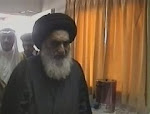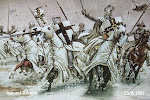3. The myth: “The Quran is the preserved word of Allah”
The fact: even during Mohammed’s time the Quran had undergone many changes.
This myth is based on the false assumption that the early Arabs had extraordinary memory, which is a myth in itself. The Quran was released over twenty-three years, most of it in Mecca with no scribes or facilities to write it. Even after Mohammed seized control of Medina, the Quran was not recorded in a systematic way. The Arabic script was still undeveloped, many letters and words shared the same appearance even though they had different meanings. Mohammed’s priority was not to write the Quran but to fight wars and subjugate the Arab tribes. Many ahadith indicate that Mohammed forgot some verses while others indicate that other verses (like the adultery verses) disappeared because they were eaten by a chicken or a goat!
The Quran reached us through history; Muslims who believe the above myth do so because they put their full trust in the Islamic history. I am afraid that it is the same Islamic history that casts doubts about the preservation of the Quran. An objective reading of the chapters about the collection of the Quran from Sahih Bukhari and Sahih Muslim, considered by Muslims most authentic books after the Quran, highlights the unreliability of the collection process. The Islamic history also tells us that Muslims were divided after Caliph Othman ordered the writing of the four official copies of the Quran. Some of top Muslims disagreed on which verses to include in those copies. In addition, there were mistakes in those official copies, which were reported to the Caliph, who accepted their existence but did not think they were significant enough to justify rewriting the Quran.
Othman’s copies were also written in a primitive script that only works as a reminder of the Quran rather than a true writing. Such undeveloped script was useless in preserving any message, never mind a legal book. It took another hundred years for the Arabic language to develop a reliable writing style.
Even if we assume that Othman’s Quran was accurate, which it wasn’t, they were useless to most Muslims simply because they had no access to them. The fact is that Muslims, in the first few centuries of Islam, managed without a clearly written Quran. The early copies of the collected Quran seem to have disappeared from history without any trace. Today’s Muslims are very sensitive to this issue and do not allow any objective study of this part of the Islamic history. A proper dating and analysis of the two ancient copies found in Samarkand and Istanbul is strictly guarded by the Islamic authorities. The German team (2) who was studying the copy found in Sana’a, Yemen in the 1970s was stopped and denied access to the script once the authorities sensed that the study could reveal a different Quran!
The story of Abdulla Ibn Abi Al Sarh (3) is of remarkable significance to the issue of preservation of the Quran. Ibn Abi Al Sarh used to scribe the Quran for Mohammed. As all Muslims know, most of the verses in the Quran have common closing sentences such as aziz hakim ( mighty and wise) and aleem hakim( meaning with knowledge and wisdom) and many more.
Once, Ibn Abi AlSarh wrote a verse that had one of those closing sentences, say aziz hakeem, but to make sure it wasn’t aleem hakim, he asked Mohammed: was it aleem hakim? Mohammed said: yes, it was. This was repeated many times until Abdulla Ibn Abi AlSarh came to the conclusion that Mohammed was a liar and the Quran was not divine because he could change its words. Ibn Abi AlSarh left Islam and secretly made his way to Mecca where he told the Arabs about his experience. The scandal was embarrassing to Mohammed who vowed to kill Ibn Abi AlSarh no matter what happens.
After Mohammed conquered Mecca, Ibn Abi AlSarh, who also was a milk brother to Othman Ibn Affan, the main financier of Mohammed’s movement, was captured and was brought to Mohammed. Othman used his influence on Mohammed and asked for his brother to be forgiven. Mohammed, surprised by Othman’s interference, masked his anger and said nothing while Othman quickly took his brother and went away.
Mohammed was angry with his men because they did not kill Ibn Abi AlSarh, their excuse was that Mohammed did not give them a signal. Mohammed said: We prophets do not deal with signals. After Mohammed’s death, Al Sarh had a successful political career under the Umayyad dynasty.
We do not know how much Ibn Abi AlSarh changed in the Quran before his defection, but we do know that those early Muslims especially under the Umayyad rule were aware that Islam was a big lie, which they used to their advantage.
12 years ago






















No comments:
Post a Comment